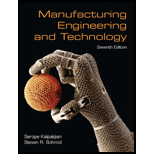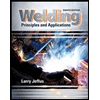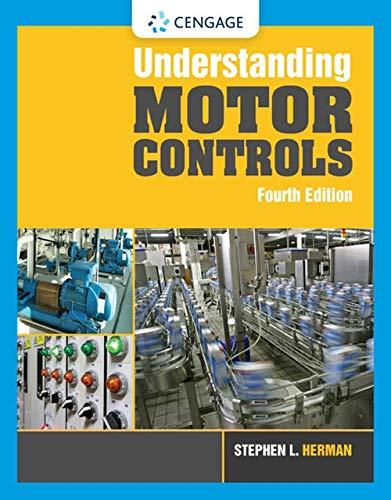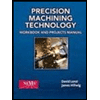
Manufacturing Engineering & Technology
7th Edition
ISBN: 9780133128741
Author: Serope Kalpakjian, Steven Schmid
Publisher: Prentice Hall
expand_more
expand_more
format_list_bulleted
Concept explainers
Textbook Question
Chapter 9, Problem 52SDP
Name applications in which both specific strength and specific stiffness are important.
Expert Solution & Answer
Want to see the full answer?
Check out a sample textbook solution
Students have asked these similar questions
This is an exam review question. The answer is Pmin = 622.9 lb but why
Please do not use any AI tools to solve this question.
I need a fully manual, step-by-step solution with clear explanations, as if it were done by a human tutor.
No AI-generated responses, please.
Please do not use any AI tools to solve this question.
I need a fully manual, step-by-step solution with clear explanations, as if it were done by a human tutor.
No AI-generated responses, please.
Chapter 9 Solutions
Manufacturing Engineering & Technology
Ch. 9 - Distinguish between composites and metal alloys.Ch. 9 - Describe the functions of the matrix and the...Ch. 9 - Name the reinforcing fibers generally used to make...Ch. 9 - What is the range in length and diameter of...Ch. 9 - List the important factors that determine the...Ch. 9 - Comment on the advantages and limitations of...Ch. 9 - What are the most commonly used matrix materials?...Ch. 9 - Describe the advantages of hybrid composites over...Ch. 9 - What material properties are improved by the...Ch. 9 - Describe the purpose of the matrix material.
Ch. 9 - What are the most common types of glass fibers?Ch. 9 - Explain the difference between a carbon fiber and...Ch. 9 - How can a graphite fiber be made electrically and...Ch. 9 - What is a whisker? What is the difference between...Ch. 9 - Describe the composition of boron fibers. Why are...Ch. 9 - Give a succinct definition of fiber, yarn, and...Ch. 9 - How do you think the use of straw mixed with clay...Ch. 9 - What products have you personally seen that are...Ch. 9 - Describe applications that are not well suited for...Ch. 9 - Is there a difference between a composite material...Ch. 9 - Identify metals and alloys that have strengths...Ch. 9 - What limitations or disadvantages do composite...Ch. 9 - Give examples of composite materials other than...Ch. 9 - Explain why the behavior of the materials depicted...Ch. 9 - Explain why fibers are so capable of supporting a...Ch. 9 - Do metal-matrix composites have any advantages...Ch. 9 - Give reasons for the development of ceramic-matrix...Ch. 9 - Explain how you would go about determining the...Ch. 9 - How would you go about trying to determine the...Ch. 9 - Glass fibers are said to be much stronger than...Ch. 9 - Describe situations in which a glass could be used...Ch. 9 - When the American Plains states were settled, no...Ch. 9 - By incorporating small amounts of a blowing agent,...Ch. 9 - Referring to Fig. 9.2c, would there be an...Ch. 9 - Calculate the average increase in the properties...Ch. 9 - In Example 9.1, what would be the percentage of...Ch. 9 - Calculate the percent increase in the mechanical...Ch. 9 - Calculate the stress in the fibers and in the...Ch. 9 - Repeat the calculations in Example 9.1 if (a)...Ch. 9 - Refer to the properties listed in Table 7.1. If...Ch. 9 - Plot the elastic modulus and strength of an...Ch. 9 - For the data in Example 9.1, what should be the...Ch. 9 - It is desired to obtain a composite material with...Ch. 9 - A rectangular cantilever beam, 100 mm high, 20 mm...Ch. 9 - What applications for composite materials can you...Ch. 9 - Using the information given in this chapter,...Ch. 9 - Would a composite material with a strong and stiff...Ch. 9 - Make a list of products for which the use of...Ch. 9 - Inspect Fig. 9.1 and explain what other components...Ch. 9 - Name applications in which both specific strength...Ch. 9 - What applications for composite materials can you...Ch. 9 - As with other materials, the mechanical properties...Ch. 9 - Developments are taking place in techniques for...Ch. 9 - As described in this chapter, reinforced plastics...Ch. 9 - Comment on your observations on the design of the...Ch. 9 - Make a survey of various sports equipment and...Ch. 9 - Several material combinations and structures were...Ch. 9 - It is possible to make fibers or whiskers with a...Ch. 9 - Describe how you can produce some simple composite...Ch. 9 - Gel spinning is a specialized process used in...Ch. 9 - Figure P9.65 shows a section of a...
Knowledge Booster
Learn more about
Need a deep-dive on the concept behind this application? Look no further. Learn more about this topic, mechanical-engineering and related others by exploring similar questions and additional content below.Similar questions
- Please do not use any AI tools to solve this question. I need a fully manual, step-by-step solution with clear explanations, as if it were done by a human tutor. No AI-generated responses, please.arrow_forwardThis is an old practice exam. Fce = 110lb and FBCD = 62 lb but whyarrow_forwardQuiz/An eccentrically loaded bracket is welded to the support as shown in Figure below. The load is static. The weld size for weld w1 is h1 = 4mm, for w2 h2 = 6mm, and for w3 is h3 =6.5 mm. Determine the safety factor (S.f) for the welds. F=29 kN. Use an AWS Electrode type (E100xx). 163 mm S 133 mm 140 mm Please solve the question above I solved the question but I'm sure the answer is wrong the link : https://drive.google.com/file/d/1w5UD2EPDiaKSx3W33aj Rv0olChuXtrQx/view?usp=sharingarrow_forward
- Q2: (15 Marks) A water-LiBr vapor absorption system incorporates a heat exchanger as shown in the figure. The temperatures of the evaporator, the absorber, the condenser, and the generator are 10°C, 25°C, 40°C, and 100°C respectively. The strong liquid leaving the pump is heated to 50°C in the heat exchanger. The refrigerant flow rate through the condenser is 0.12 kg/s. Calculate (i) the heat rejected in the absorber, and (ii) the COP of the cycle. Yo 8 XE-V lo 9 Pc 7 condenser 5 Qgen PG 100 Qabs Pe evaporator PRV 6 PA 10 3 generator heat exchanger 2 pump 185 absorberarrow_forwardQ5:(? Design the duct system of the figure below by using the balanced pressure method. The velocity in the duct attached to the AHU must not exceed 5m/s. The pressure loss for each diffuser is equal to 10Pa. 100CFM 100CFM 100CFM ☑ ☑ 40m AHU -16m- 8m- -12m- 57m 250CFM 40m -14m- 26m 36m ☑ 250CFMarrow_forwardA mass of ideal gas in a closed piston-cylinder system expands from 427 °C and 16 bar following the process law, pv1.36 = Constant (p times v to the power of 1.36 equals to a constant). For the gas, initial : final pressure ratio is 4:1 and the initial gas volume is 0.14 m³. The specific heat of the gas at constant pressure, Cp = 0.987 kJ/kg-K and the specific gas constant, R = 0.267 kJ/kg.K. Determine the change in total internal energy in the gas during the expansion. Enter your numerical answer in the answer box below in KILO JOULES (not in Joules) but do not enter the units. (There is no expected number of decimal points or significant figures).arrow_forward
- my ID# 016948724. Please solve this problem step by steparrow_forwardMy ID# 016948724 please find the forces for Fx=0: fy=0: fz=0: please help me to solve this problem step by steparrow_forwardMy ID# 016948724 please solve the proble step by step find the forces fx=o: fy=0; fz=0; and find shear moment and the bending moment diagran please draw the diagram for the shear and bending momentarrow_forward
arrow_back_ios
SEE MORE QUESTIONS
arrow_forward_ios
Recommended textbooks for you
 Welding: Principles and Applications (MindTap Cou...Mechanical EngineeringISBN:9781305494695Author:Larry JeffusPublisher:Cengage Learning
Welding: Principles and Applications (MindTap Cou...Mechanical EngineeringISBN:9781305494695Author:Larry JeffusPublisher:Cengage Learning Understanding Motor ControlsMechanical EngineeringISBN:9781337798686Author:Stephen L. HermanPublisher:Delmar Cengage Learning
Understanding Motor ControlsMechanical EngineeringISBN:9781337798686Author:Stephen L. HermanPublisher:Delmar Cengage Learning Precision Machining Technology (MindTap Course Li...Mechanical EngineeringISBN:9781285444543Author:Peter J. Hoffman, Eric S. Hopewell, Brian JanesPublisher:Cengage Learning
Precision Machining Technology (MindTap Course Li...Mechanical EngineeringISBN:9781285444543Author:Peter J. Hoffman, Eric S. Hopewell, Brian JanesPublisher:Cengage Learning Principles of Heat Transfer (Activate Learning wi...Mechanical EngineeringISBN:9781305387102Author:Kreith, Frank; Manglik, Raj M.Publisher:Cengage Learning
Principles of Heat Transfer (Activate Learning wi...Mechanical EngineeringISBN:9781305387102Author:Kreith, Frank; Manglik, Raj M.Publisher:Cengage Learning Refrigeration and Air Conditioning Technology (Mi...Mechanical EngineeringISBN:9781305578296Author:John Tomczyk, Eugene Silberstein, Bill Whitman, Bill JohnsonPublisher:Cengage Learning
Refrigeration and Air Conditioning Technology (Mi...Mechanical EngineeringISBN:9781305578296Author:John Tomczyk, Eugene Silberstein, Bill Whitman, Bill JohnsonPublisher:Cengage Learning Mechanics of Materials (MindTap Course List)Mechanical EngineeringISBN:9781337093347Author:Barry J. Goodno, James M. GerePublisher:Cengage Learning
Mechanics of Materials (MindTap Course List)Mechanical EngineeringISBN:9781337093347Author:Barry J. Goodno, James M. GerePublisher:Cengage Learning

Welding: Principles and Applications (MindTap Cou...
Mechanical Engineering
ISBN:9781305494695
Author:Larry Jeffus
Publisher:Cengage Learning

Understanding Motor Controls
Mechanical Engineering
ISBN:9781337798686
Author:Stephen L. Herman
Publisher:Delmar Cengage Learning

Precision Machining Technology (MindTap Course Li...
Mechanical Engineering
ISBN:9781285444543
Author:Peter J. Hoffman, Eric S. Hopewell, Brian Janes
Publisher:Cengage Learning

Principles of Heat Transfer (Activate Learning wi...
Mechanical Engineering
ISBN:9781305387102
Author:Kreith, Frank; Manglik, Raj M.
Publisher:Cengage Learning

Refrigeration and Air Conditioning Technology (Mi...
Mechanical Engineering
ISBN:9781305578296
Author:John Tomczyk, Eugene Silberstein, Bill Whitman, Bill Johnson
Publisher:Cengage Learning

Mechanics of Materials (MindTap Course List)
Mechanical Engineering
ISBN:9781337093347
Author:Barry J. Goodno, James M. Gere
Publisher:Cengage Learning
Material Properties 101; Author: Real Engineering;https://www.youtube.com/watch?v=BHZALtqAjeM;License: Standard YouTube License, CC-BY